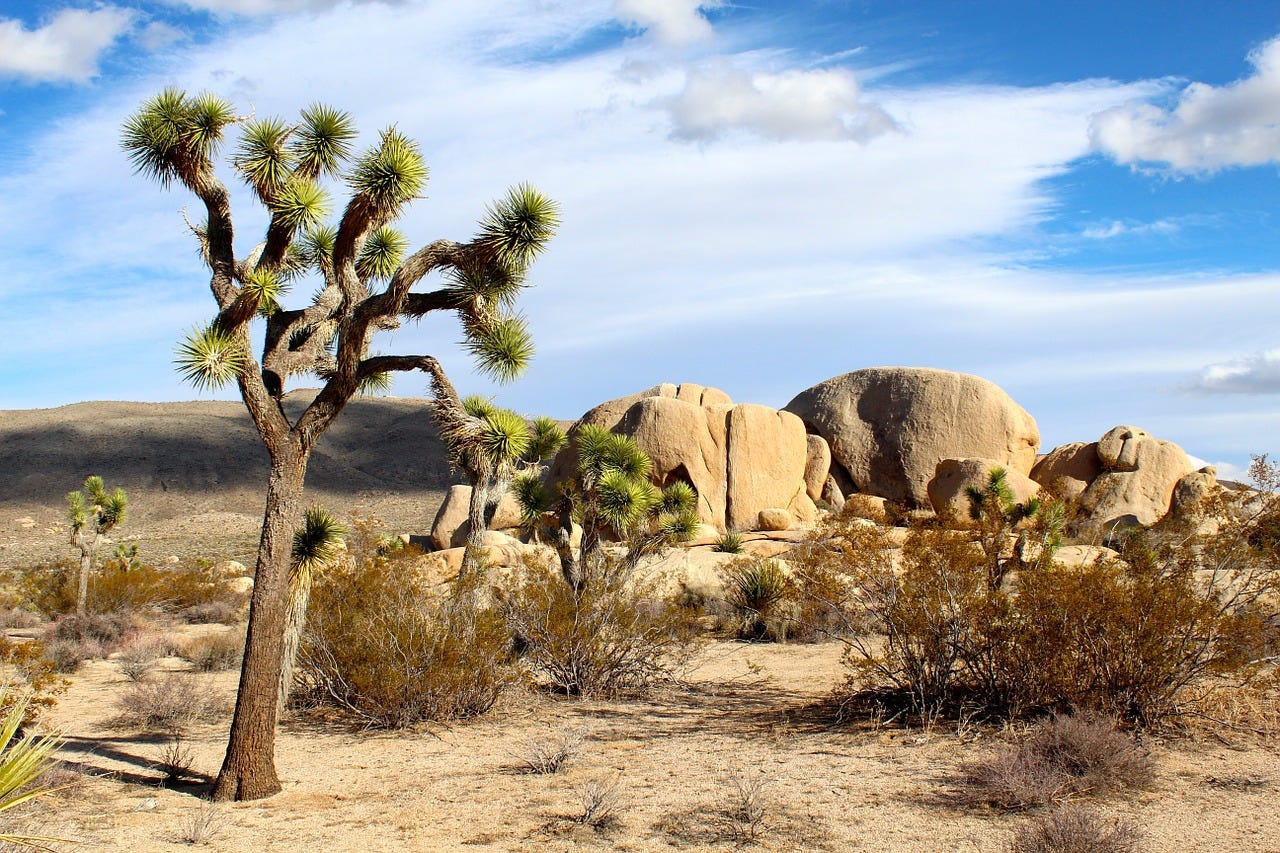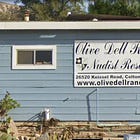The shrinking map of body freedom in California
The listing of Exotic Dreams Resort reflects a growing trend: nudity-friendly destinations rebranded, reimagined, or erased by real estate economics

A Palm Springs resort known for its clothing-optional policies and adult “play maze” is now up for sale at $10.5 million, but the headlines aren’t just about a niche swingers destination changing hands. The real story is how Exotic Dreams Resort joins a growing list of former nude-friendly properties in California being swept up in a real estate market that increasingly favors clothed conformity.
“What we’re seeing in the market is a lot of these clothing-optional or niche hotels are being converted into more traditional boutique hotels because that’s where the market is heading.”
As reported by Realtor.com, Exotic Dreams (formerly All Worlds Resort, a gay men’s clothing-optional destination) is being marketed as a turn-key opportunity, complete with renovated rooms, established clientele, and the intellectual property needed to keep the resort running. But its listing agent, Adam Gilbert, suggests its real value lies in its potential to move away from the clothing-optional model entirely. “What we’re seeing in the market is a lot of these clothing-optional or niche hotels are being converted into more traditional boutique hotels because that’s where the market is heading,” Gilbert told Realtor.com.
That statement mirrors a pattern Planet Nude has covered closely over the past two years. From Desert Sun Resort in Palm Springs to Lupin Lodge in Los Gatos, California’s landed nudist and clothing-optional spaces are being sold, shuttered, or rebranded to fit a hospitality industry more concerned with broad market appeal than preserving body freedom.
Clothed for business
While Exotic Dreams isn’t a traditional naturist club like those affiliated with AANR (the American Association for Nude Recreation), it’s part of a broader trend playing out across California’s nudist landscape. Several longtime AANR-affiliated resorts in California—including but not limited to Lupin Lodge, Olive Dell Ranch, and DeAnza Springs Resort—have each faced existential shifts in recent years, despite long-standing commitments to family-friendly, nude-friendly values.
DeAnza Springs Resort was sold in 2020. Though the new owners pledged to preserve its nude-friendly ethos, they abruptly reversed course and shifted to a clothed model in 2023.
Olive Dell Ranch underwent a partial sale in 2019, with new co-owners promising continuity as a nudist resort. In 2023, they abruptly ousted the longtime managers and, less than a year later, announced that the club was going clothed-only.
Lupin Lodge was inherited by its current owner, Lori Kay Stout, after the death of her husband, owner Glynn Stout, in 2015. In 2023, after years of significant hardship running the club, Stout announced the reluctant decision to sell. While still operating as a nudist resort today, it is listed at $32 million—a price many in the community view as incompatible with a sustainable nudist operation. Its future remains uncertain.
Even when promises are made to preserve these spaces, the market often overrides them.
Palm Springs provides another example. Desert Sun Resort—once a thriving nudist institution just minutes from Exotic Dreams—was sold in early 2025, following a failed sale attempt the year prior. The new owner, Ryan Jaleh, made no claim to preserve nudism and quickly announced plans to rebrand. By late 2025, it reopened as Casa Palma, a fully clothed boutique hotel emphasizing weddings, pickleball courts, and shaded picnic lawns. While more transparent in its intent, the transformation of Desert Sun still represents the cultural erasure of a historic nudist space. Its marketing replaces community-based nudism with clothed leisure, subtly reinforcing the idea that wholesome fun and mainstream respectability only thrive where bodies are covered.
In each case, financial pressure and new ownership have put these resorts’ nude-friendly identities at risk. The pattern is clear: longtime nudist clubs are being sold, rebranded, or stripped of what made them unique. That uncertainty now hangs over Exotic Dreams as well. While its adult-focused identity sets it apart from the family-oriented clubs mentioned above, the driving forces behind its listing are familiar: investors and brokers who view a culture of nudity as a liability to be eliminated for broader appeal.
What happens when the niche vanishes?
Today, Exotic Dreams’ marketing materials still highlight the lifestyle-friendly adult atmosphere, but its listing agent clearly sees more financial upside in a pivot to clothed hospitality. “It’s much more profitable to open it up to everyone as opposed to going niche, niche, niche,” Gilbert told Realtor.com.
The truth is, nudity in hospitality, whether framed as naturism, queer community, or sexual exploration, has always existed outside the mainstream. That reality makes it vulnerable. California once offered a spectrum of spaces where people could gather nude on their own terms. That spectrum is shrinking.
This trend is playing out across the state. Naturist clubs that aren’t member-owned or structured as nonprofits are especially vulnerable to these transitions. As Planet Nude has reported, investor-owned clubs are typically driven by market pressures rather than cultural stewardship. One notable exception is Glen Eden Sun Club in Temescal Valley, which has remained stable thanks to its nonprofit, member-owned model—but these days, this model is the exception, not the rule. Laguna Del Sol in Northern California is still privately owned by longtime nudists and has made no public plans to sell or change course. But what happens when those owners age out or retire? A club’s succession plan shouldn’t just cover inheritance; it should include a realistic strategy for long-term preservation. Without that, its future remains uncertain.
When these places close, they leave behind a real absence. Nudist spaces have never been common, and the few that exist are often lifelines for people seeking community, comfort in their bodies, or a new way of living. Their loss means fewer opportunities to discover naturism through experience, fewer gatherings, fewer firsts. It also raises uncomfortable questions. Can the naturist movement grow without spaces to gather? Can non-landed and online groups offer enough to keep people engaged? And what role, if any, should buyers or brokers play in deciding whether a place with cultural significance deserves to be preserved?
If Exotic Dreams is bought and rebranded, it won’t be the first. And at the current pace, it won’t likely be the last either. 🪐








It's unfortunate that Substack features don't include a "dislike" or "angry face" reaction button. But I appreciate the concise recap of what is shaping up to be the end of an era.
Oddly enough, many of the owners/managers of naturist places we've talked to over the years have found success specifically IN MARKETING as clothes-free! That set them apart from the mainstream hospitality industry, where they could boast high occupancy in the off-season simply by the nature of their unique offerings.
I fear the current phenomenon of rapid decline is not only due to the aging out/passing of owners and nudist visionaries, but an even more frightening trend of an ever-growing prudish/conservative society. Add to that the general paranoia in the shadow of digital photography and all things internet, and we find ourselves in an era where people are more fearful of judgment and violation of privacy than ever before.
It seems ironic that British Naturism seems to be growing by leaps and bounds, French naturism is experiencing a revival with young families, and huge new spa complexes where nudity is common are springing up all over northern Europe.
Apparently it's mainly us Americans who are experiencing this huge Puritan revival!
[Insert "sad emoji with tears" button, please.]
Nudist venues have always, I believe, been started by amateur entrepreneurs with few financial or marketing skills. These remain woefully under capitalized. That these have survived for decades as fringe operations is a tribute to their knowledge of common cultural norms. Sadly, that is not enough. The survivors need to analyze the European model. AANR & TNS need to put together a Manual of Best Practices for Nudist Resorts that would give new nudist entrepreneurs a leg up. Why should every nudist resort be crippled by wrong choices?
I have been to too many resorts where management milked the premises until nothing was left except the value of real estate. Their managements failed to keep their properties up, failed to invest in any thing other than passive activities like sunbathing, and, in some cases, were downright hostile to newcomers. Their ultimate failures as enterprises should come as no surprise. The seemed to forget that the ASA discarded ‘Sunbathing’ in favor of ‘Nude Recreation.’
As for marketing, just to give you one example: of all the nudist venues I have visited in the last 20 years, not a single one has followed up with any communication inviting me back, asking me for a survey, let alone make me aware of any improvements in their enterprise.
So yes, the closing of nudist resorts is tragic. What is more tragic is that the survivors are unable to learn from the experiences of the failed nudist enterprises.